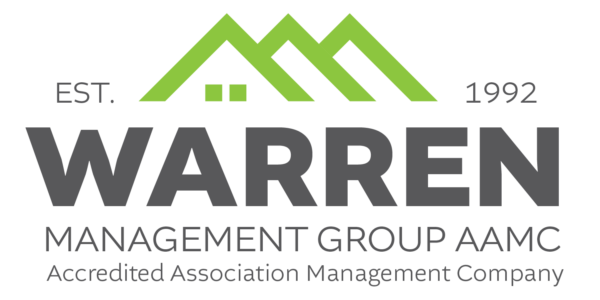 By Linda Warren, CMCA, AMS, PCAM, President of WMG
By Linda Warren, CMCA, AMS, PCAM, President of WMG
By close of business on Monday, I was mentally spent. I had spent a major part of my day trying to open the lines of communication with two homeowners that live in two different client communities. These homeowners were clearly upset and dissatisfied; unfortunately, they both had chosen to deal with their issue with anger, threats, and strong allegations. It was time for me to intercede as I now had two community association managers completely frazzled, offended, exhausted and fed up.
When you work with people, the goal of making them happy is a daunting job as well as a moving target. I once had a sign that read, “You can’t make everyone happy every day. Today’s not your day. Tomorrow’s not looking good either!” Truthfully, our goal isn’t to, “keep everyone happy.” Instead we strive to, “nurture the best relationship with every client.”
Just who is “every client?”
Our client is the Association; a homeowner’s association, a condominium owners association, a property owners association – the client is the entity, and those that represent that client are the Board of Directors. As association managers, we don’t “work for” the homeowners.
What is Management’s Role with Community Associations?
Management’s role with community associations is to serve as “communication liaison” with the Association’s members. Yet because most members don’t understand management’s role, they set their own expectations. The truth is: the decision maker in this partnership is the Board of Directors, not management.
Management doesn’t t write the governing documents, and management can’t change them. Only a vote of the members can change standards set for the community.
Management doesn’t set the assessment; management assists the Board in developing the annual budget, but again, the final decision is solely made by the Board of Directors.
Management doesn’t impose Special Assessments. Multiple unit owner meetings are held, and a vote is taken by the owners to pass a Special Assessment.
Having the Right Expectations
Misunderstanding the management team’s roles or having expectations that differ from reality can lead to unnecessary friction between all parties involved. The truth is that there’s absolutely no value in being angry at management because an Assessment was passed in one’s community. Yet it happens.
Managers spend time in lengthy phone calls with people that give voice to all the reasons why they can’t pay the Assessment, why it’s unfair (even though it was voted by a majority of the owners), and why it’s the Manager’s fault that they are being put such stress, expecting them to get them excused from having to pay.
Some individuals react very inappropriately to covenant violation notices. They call management and rant and rave because they received a letter, somehow expecting us to change the ruling so that it doesn’t apply to them. That’s not management’s role or authority. When the offended individuals don’t receive the answer they want, they escalate the conversation even further, now making it a personal attack on the management team member they called. Some even go to the level of making threats. This is simply unacceptable adult behavior. It’s called bullying. No wonder it’s a problem with children today, they learn from adults.
Warren Management Group’s Role & Reputation
Our team at WMG does not deserve to be bullied. Each one of our staff members work hard to maintain their professionalism in every communication. Yet I remind them that they are not paid to be abused nor will I tolerate such treatment.
Bullying is a significant problem in our society. It seems very easy for people to be ugly and inappropriate on the other end of a phone call or behind their computer screen. Being threatening by yelling, name-calling, and other personal attacks is never a useful method of resolution.
Our clients are very important to us. Quality customer service is a priority to us. We track every call and every email received. Those who abuse the standard of professionalism do not deserve our service, and we are under no obligation to oblige them when they lack civility. Somehow this understanding of how we offer our services must be made clear. I will not risk the careers of our management team.
I was reminded this morning by a local realtor that we have the best reputation in town. We strive to serve every person that contacts our office with a need and will continue doing so within reasonable boundaries. All we ask is that people be civil. Be decent. Ask questions and seek understanding. Realize management’s role with community associations and keep your expectations within that purpose.
Thankfully, the issues I dealt with on Monday were resolved. The truth won in the end. Both owners recognized that their anger was far greater than the issues, which were resolvable with a bit more information. Yet considerable time was spent, and so was I. It’s important to remember that regardless of the situation, we can all benefit from showing one another mutual respect and professionalism. When it comes to working and living in our communities, we are all on the same team.
